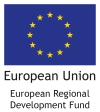In this mini-series, we introduce our national Contact Points from around the programme area. The national Contact Points are the link between the programme and the regions. They inform about the funding opportunities and provide first information to potential applicants. Contact Points also help with partner search and matchmaking. In addition, they follow projects closely to share/spread project results and communicate the benefits of cross-border cooperation. Previus Contact Points in Spotlight:
2018
Part 1: Our national Contact Point on Åland - Ester Laurell
Part 2: Our national Contact Point in Finland - Jaakko Ranta
Part 3: Our national Contact Point in Latvia - Ilze Legzdina
Part 4: Our national Contact Point in Sweden South - Annika Holmström
Part 5: Our national Contact Point in Estonia - Johanna Joosep
Part 6: Our national Contact Point in Sweden-North - Christina Rehnberg
2019
Part 7: Our national Contact Point in Estonia - Ingel Türk
Part 8: Our national Contact Point in Finland - Julia Jokelin
I love to be a part of changes for the better. That is why I ended up working as an administrative manager in a Local action groups (LEADER project programme), and participating in ERASMUS+, LADDER and INTERREG programmes different project activities. Then I found out about this position at the Central Baltic programme and I thught it would be perfect for me.
What does a typical working day look like?
Since March there has been no typical working day. There are many challenges for everyone, but I am flexible and I have the best colleagues, so I am not worried.
What are you currently working with?
I am planning, organizing and participating in different events, mostly online and I am updating the projects I follow in the project database, as well as endorsing them on social media (FB and interreg.lv), collecting statistics and taking care other administrative tasks.
What is the best thing about your work?
Follow the results of the projects I follow. It makes me so proud that they influence all kinds of different processes leading to a better future. And to know that what starts with a single project results achieved here in the Central Baltic area, sometimes expands to something that can be trasfered in the framework of different projects or cooperation frameworks around the world.
2018
Part 1: Our national Contact Point on Åland - Ester Laurell
Part 2: Our national Contact Point in Finland - Jaakko Ranta
Part 3: Our national Contact Point in Latvia - Ilze Legzdina
Part 4: Our national Contact Point in Sweden South - Annika Holmström
Part 5: Our national Contact Point in Estonia - Johanna Joosep
Part 6: Our national Contact Point in Sweden-North - Christina Rehnberg
2019
Part 7: Our national Contact Point in Estonia - Ingel Türk
2020
Part 8: Our national Contact Point in Finland - Julia Jokelin
National Contact Points in spotlight - Daiga Krumina
How did you end up working with Central Baltic?I love to be a part of changes for the better. That is why I ended up working as an administrative manager in a Local action groups (LEADER project programme), and participating in ERASMUS+, LADDER and INTERREG programmes different project activities. Then I found out about this position at the Central Baltic programme and I thught it would be perfect for me.
What does a typical working day look like?
Since March there has been no typical working day. There are many challenges for everyone, but I am flexible and I have the best colleagues, so I am not worried.
What are you currently working with?
I am planning, organizing and participating in different events, mostly online and I am updating the projects I follow in the project database, as well as endorsing them on social media (FB and interreg.lv), collecting statistics and taking care other administrative tasks.
What is the best thing about your work?
Follow the results of the projects I follow. It makes me so proud that they influence all kinds of different processes leading to a better future. And to know that what starts with a single project results achieved here in the Central Baltic area, sometimes expands to something that can be trasfered in the framework of different projects or cooperation frameworks around the world.


